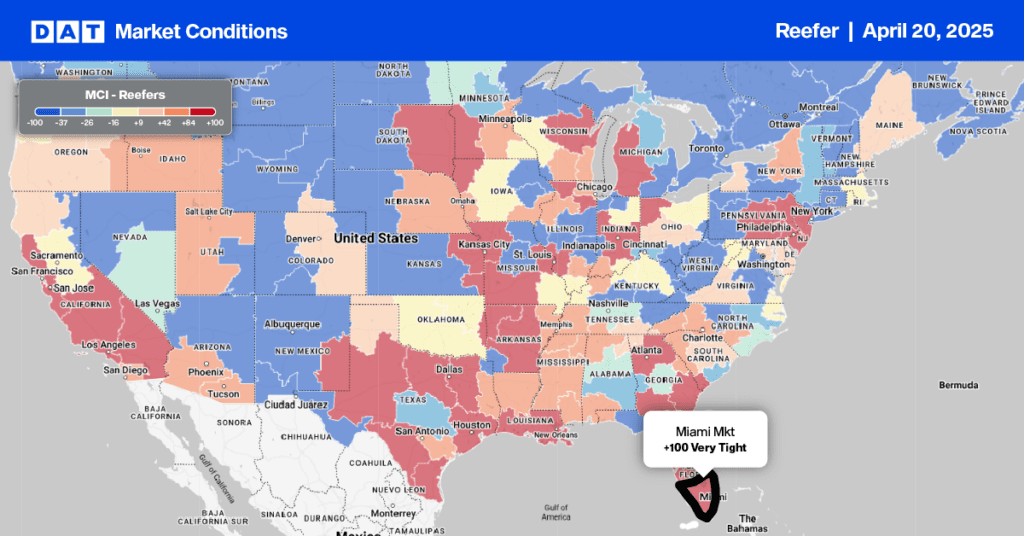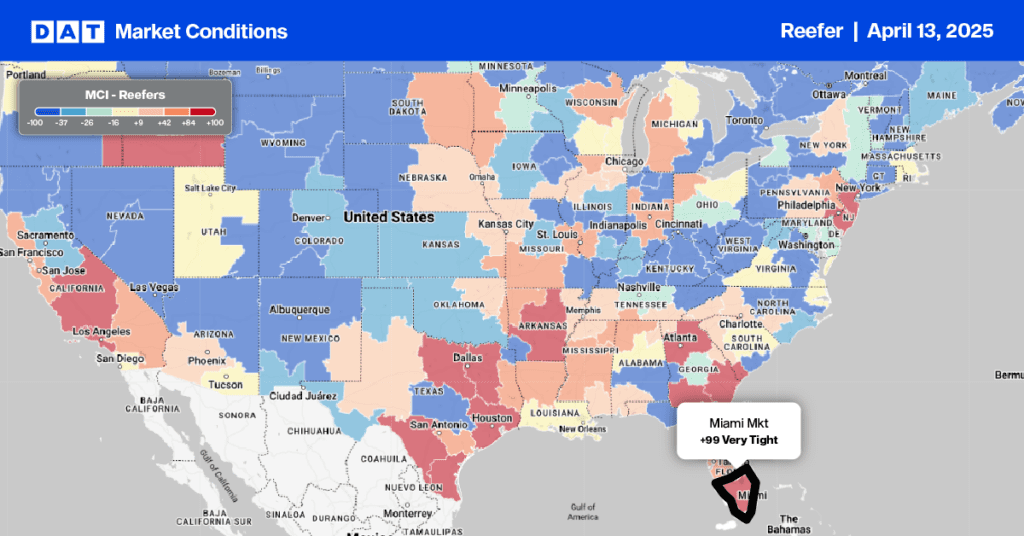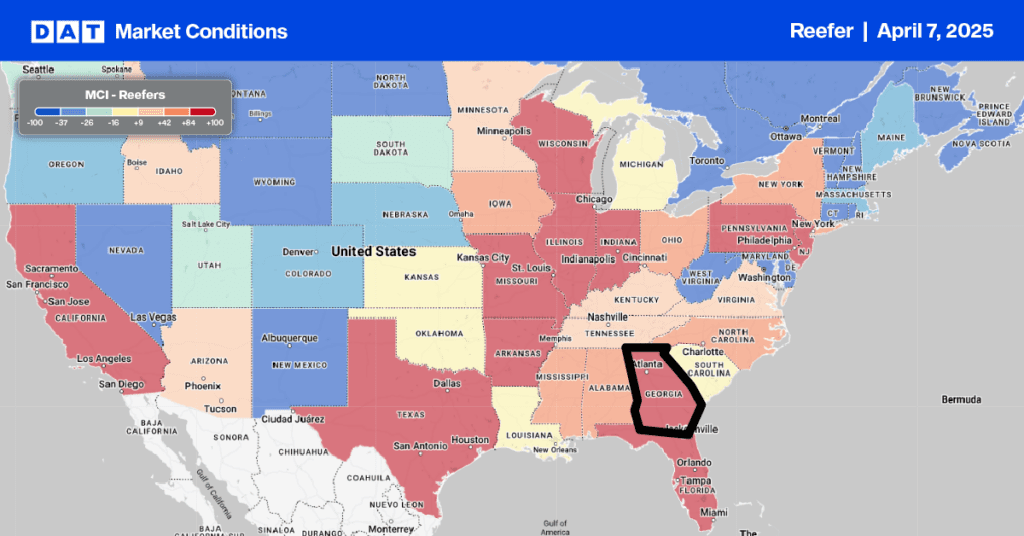Relief efforts are underway with the deadly floods that took place in Kentucky in late July, and refrigerated trailers are a large part of any disaster recovery effort. Rainfall estimates showed that 14 to 16 inches fell during a five-day period, beginning on July 27. An emergency declaration was issued on July 28 because of the considerable damage and economic loss resulting from the flooding in eastern Kentucky. Kentucky Transportation Secretary Jim Gray also issued an order to exempt commercial drivers from a number of regulations. If a commercial vehicle is assisting with disaster efforts they are exempt from hours of service, exempt from permits for overweight and over-dimensional vehicles, and having to stop at weigh stations.
On Friday, President Joe Biden approved the Kentucky disaster declaration and ordered federal aid to supplement commonwealth and local recovery efforts in the areas affected by severe storms. Governor Andy Beshear said during a Saturday press update that 18 tractor-trailer truckloads of water were en route to Kentucky as part of a FEMA response. Many non-profit agencies are working hard to help to provide supplies such as the American Logistics Aid Network and Trucks with Room to Spare.
ALAN is an industry-wide organization that exists to provide supply chain assistance to disaster relief organizations (and other non-profits). According to ALAN, studies show that up to 80 percent of their crisis spending goes to logistics. Shelli Conaway-Waugh, CEO of nonprofit Trucks with Room to Spare, said “Currently, we’re working with other nonprofits, community groups, and business owners to collect and transport what supplies we can get into the area,” she said. “We need drivers to help transport loads. As this progresses, there will be more help requests for transportation.”
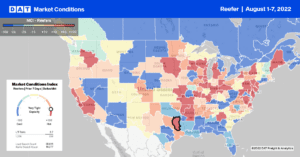
All rates cited below exclude fuel surcharges unless otherwise noted.
Even though growers had trouble getting onto flood-soaked fields to harvest watermelons last week, truckload capacity in Southwest Indiana and Southeast Illinois was in short supply last week. Reefer linehaul rates in the Bloomington, IL, market surged, increasing by $0.74/mile to an average of $3.36/mile. Regionally spot rates were up $0.15/mile to $2.19 last week. Loads from Bloomington, IL, to Atlanta averaged $3.27/mile last week, which is $0.45/mile higher than July, while loads east to Boston were flat at $2.50/mile.
Reefer spot rates in San Diego increased by $0.38/mile last week to an average of $3.22/mile following July’s 22% m/m increase in reefer imports. According to PIERS, Banana imports dominate the inbound container market at 75%, with the majority of volume coming from Ecuador, where reefer volumes were up 72% last month. In Fresno, produce volumes were up slightly last week, but outbound rates remained flat at $2.33/mile after dropping for the prior three weeks. On the East Coast in Elizabeth, NJ, reefer capacity tightened following the 26% m/m increase in load post volumes – spot rates increased by $0.13/mile to $1.88/mile and up by almost the same amount to $2.03/mile for loads to Lakeland, FL. Loads from Elizabeth to Atlanta were up $0.15/mile to $1.93/mile last week.
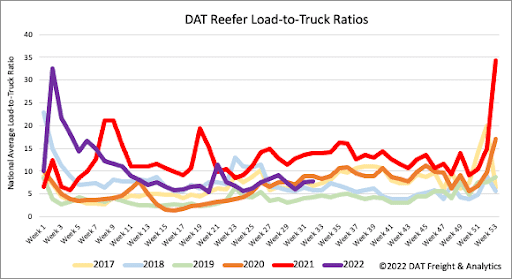
The record-breaking heat wave baking the East Coast and Central West at the moment is keeping reefer demand elevated following last week’s 5% w/w increase in load post volumes. Carrier equipment posts were flat the previous week, although still at record-high levels for the start of August. As a result of higher load post volumes, the reefer load-to-truck (LTR) ratio increased slightly to 7.76.
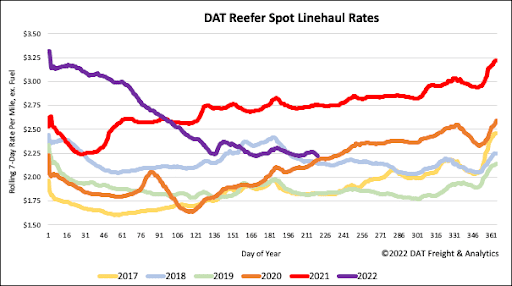
Compared to the previous week, last week’s reefer linehaul rate increased by just $0.02/mile to a national average of $2.26/mile. Reefer spot rates are currently $0.54/mile lower than the previous year and $0.08/mile higher than where reefer spot rates were in 2018, but $0.34/mile higher than the pre-pandemic average for this time of the year.
